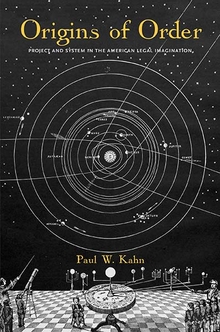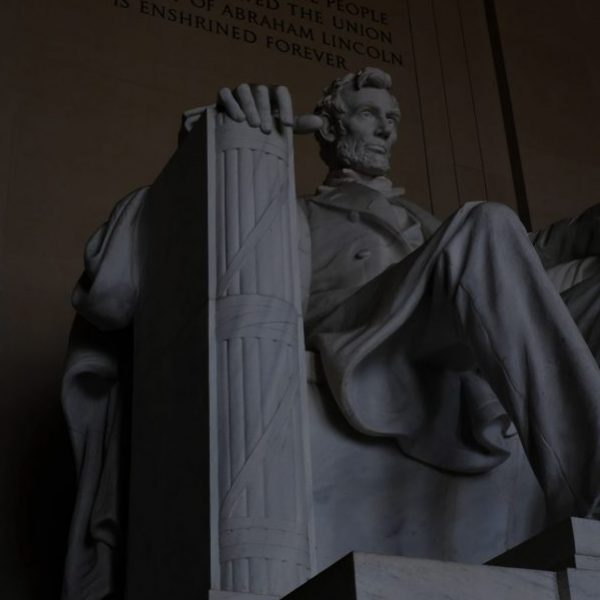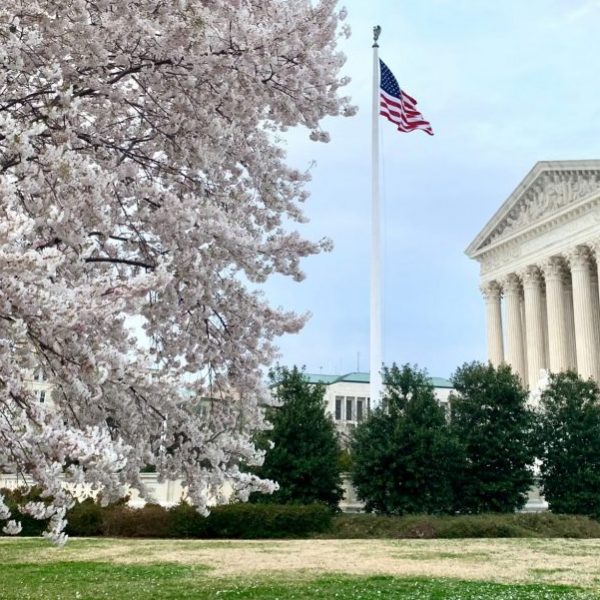Origins of Order
Paul W. Kahn—
Project and system views of law are in deep tension, but this is not a tension that needs to be resolved at an abstract level. We live with multiple ways of imagining law and explaining ourselves. These different pictures contend at the retail level. They are put to use in efforts to explain and persuade. Consider, for example, a criminal trial in which the prosecutor argues that the defendant freely chose to pursue an illegal project, while the defense argues that the fault is in the system of education or housing or family within which the defendant grew up. We need both perspectives not just to understand the particular, but to imagine the broad character of social order, including law.
Over the course of the nineteenth century, there is a movement from project to system as the dominant way of imagining law, among American lawyers, judges, politicians, and scholars. The question of what causes shifts in the categories of the social imaginary is not one for philosophy. To seek a cause is to deploy a category borrowed from the natural sciences. Scientists seek to account for change by identifying factors—causes— that are necessary conditions precedent to the events. For philosophy to follow that line of thought is to think that history is working itself out in a single direction, as if it could not be other than it is and has been. The teleological character of this approach is a remnant of a distinctly premodern conception of creation under the direction of God.
Philosophy can observe difference, but it cannot offer proof. When we say, for example, that the Reformation led to a change in attitudes toward science, we are not identifying a cause in a scientific sense. We are observing a difference and offering an interpretation that tries to make sense of an indefinite array of events, practices, beliefs, and individual innovations, no one of which we can say was necessary. We cannot say what would have been the case in the absence of any particular fact; we cannot isolate one factor and test its relevance. An interpretation, accordingly, does not identify causes; it offers reasons that can be more or less persuasive. What persuades may change over time. An interpretation, then, is as much about us as it is about its object of inquiry.
Just as philosophy does not offer causes, it does not adjudicate between project and system. One view is not right in itself, or more right than the other. At issue are ways of imagining law, not the truth of the law as an object independent of our imagining. Law simply is an interpretive practice. It is whatever we imagine it to be just to the degree that we can persuade others to see as we do. In the pages that follow, I do my best to articulate each of the imaginings of law that I address. I try to reconstruct the legal world as it is seen by the participants. I take no sides in their debates, for most of the time the participants did not see themselves as debating. They simply imagined the world as best they could as possibilities appeared in the context of particular concerns and controversies. We have no choice but to do the same.
Philosophy’s contribution, then, is not to counter the accounts of causation that are offered by social scientists and historians, but to interpret the products of the social imaginary in order to expose the character and operation of the historical a priori. There is no special site for examination of the social imaginary, for it is equally present in the micro-and the macrocosm. We can examine a text or a genre; we can look to an event or an era, a person or a group. The categories of the imagination are constantly replicated in our experience, and experience has no natural limits.
Nevertheless, law is a particularly fruitful place of inquiry, not only because of its importance to modern life, but because it produces readily available texts—texts that include both the laws themselves and reflections upon the law. Law in the modern era always develops within a theory of law. This is one of the ways in which law differs from custom. More broadly, law locates itself with respect to a theory of politics that grounds the legitimacy of law. Modern law includes this critical activity of arguing about what the law is and what it should be. Arguing, we make use of the imaginative resources at hand.
Representations of law are everywhere. The philosophical task is to interrogate these representations in order to discover what they can tell us about how we imagine ourselves and our communities. When we take up that task, we are drawn in two directions at once: project and system.
From Origins of Order by Paul W. Kahn. Published by Yale University Press in 2021. Reproduced with permission.
Paul W. Kahn is Robert W. Winner Professor of Law and the Humanities and Director of the Orville H. Schell, Jr. Center for International Human Rights at Yale Law School. He is the author of many books, including Making the Case, Political Theology, The Cultural Study of Law, and The Reign of Law.
Further Reading:



























